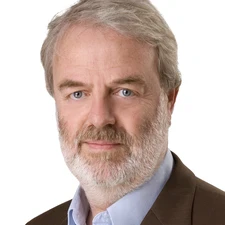François Robida

The 2024 Ian McHarg Medal is awarded to François Robida for his outstanding work in establishing internationally standardised geoinformation technologies and services, which enable global geoscience data sharing and underpin modern data-intensive research.
Based at the French Geological Survey Bureau de Recherches Géologiques et Minières (BRGM) for 18 years in leading positions, Francois Robida played a key role in the development. implementation and adoption of digital best practices in the production and sharing of digital geoscience information and data on the global scale.
He championed a standardised approach for subsurface data as a Director of the Open GeoSpatial Consortium and stepped down after 10 years in 2021. He was chair and a founding member of the International Union of GeoSciences (IUGS) Commission for Geoscience Information leading in the development of international geoscience data exchange and vocabularies that today are known and further developed as IUGS’s GeoSciML data model, that now includes an international standard for the exchange and machine readability of geoscience borehole data. He played a leading role in the success of the OneGeology Consortium bringing together 189 member-organisations in 120 countries to develop and publish standard geoscience data. He subsequently chaired a group EuroGeoSurveys Spatial Information Expert Group, an organisation co-ordinating the practice in Geoscience information and data delivery among 47 Geological Survey members on the European continent and the formation of OneGeology-Europe, which in turn led to the development of the European Geological Data Infrastructure (EGDI).
Throughout his career, Robida consistently sought to develop sustainable data and information infrastructures that enable machine-to-machine sharing of data from globally distributed online data resources and repositories. Most impressive of all these achievements is his never-ending enthusiasm and engagement in achieving early visions of international data integration (already around 2008), tasks that are today often discussed and aimed at, but still difficult to achieve, even with modern computational possibilities.
Since retirement Robida has still remained engaged in some more geoscience standards activity as President of the MINnD Natonal Project (Interoperable Information Model for Sustainable Infrastructures) promoting interoperability in Building Information Modelling in France. He has remained engaged with the International Union of Geosciences Commission for the Management and Application of Geoscience Information and is an active participant in the IUGS Deep-time Digital Earth Project.
The EGU Earth and Space Science Informatics (ESSI) Division is pleased to award Robida with the Ian McHarg medal for his lifetime achievement for best practice global sharing of geoscience data and in the establishment of many enduring geoscience information infrastructures that underpin the next generation of machine-actionable data-intensive science research methods including Artificial Intelligence and Machine Learning.
